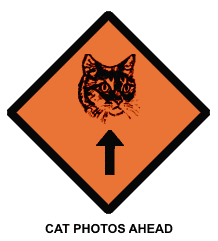You Are The Net
In a few years it may well seem that the boundary between human and net has desolved:
“One expects there to be much more organic connection between people and technology,” says Google Chief Internet Evangelist Vint Cerf, who is widely known as one of the “fathers” of the Internet for his role in co-designing the TCP/IP protocol and the Internet’s architecture.
Crossing the Line
If Mr. Cerf and about two dozen other pundits Red Herring interviewed about the future of the Internet are right, in 10 years’ time the barriers between our bodies and the Internet will blur as will those between the real world and virtual reality.
If you want to see a future where the promise of the net is magnified beyond the wildest imagination of most living today, one where innovation drives new applications on a daily basis, then you need to work to assure that no government and no business (like the phone companies or the incumbent network providors) sets any rules for the internet beyond an open net where anyone can provide content and no carrier can censor the content or data streams that you want to access.
